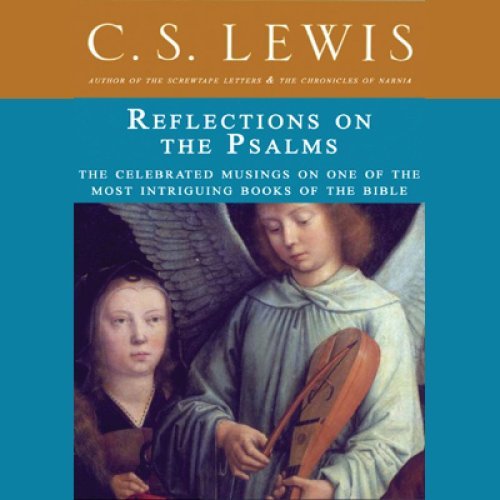As avid a reader of C. S. Lewis as I have been throughout my life, some of his lesser-known works escaped me until recently. For instance, after seeing the video Planet Narnia, I was fascinated by the way Lewis incorporated the medieval worldview into the series. I also discovered that he had explained it in The Discarded Image, so I readily obtained that book and burrowed through it (not one to recommend to a new reader since it is one of his most scholarly).
Then I decided to delve into a few others I’d never read. The first was Reflections on the Psalms. I admit I have always been reluctant to read that one because I’m not in complete agreement with his view of how to understand the Old Testament as part of God’s Word, but I finally realized that since this was Lewis, I had no need to doubt his genuineness or his high view of Scripture.
I’m glad I jumped over that mini-obstacle. Reflections on the Psalms is like all of Lewis’s works—brimming with insight and unique ways of expressing the faith.

Reviewing it once again, I was struck by a passage that compared the Old Testament with the words of Jesus. Lewis begins,
This is one of the rewards of reading the Old Testament regularly. You keep on discovering more and more what a tissue of quotations from it the New Testament is; how constantly Our Lord repeated, reinforced, continued, refined, and sublimated, the Judaic ethics, how very seldom He introduced a novelty.
While some critics might see the lack of novelty in Jesus’ words a reason to discount His significance, Lewis exposes the faulty reasoning behind that criticism:
This of course was perfectly well-known—was indeed axiomatic—to millions of unlearned Christians as long as Bible-reading was habitual. Nowadays it seems to be so forgotten that people think they have somehow discredited Our Lord if they can show that some pre-Christian document (or what they take to be pre-Christian) such as the Dead Sea Scrolls has “anticipated” Him. As if we supposed Him to be a cheapjack like Nietzsche inventing a new ethics!
Lewis then brings the reader to the main point:
Every good teacher, within Judaism as without, has anticipated Him. The whole religious history of the pre-Christian world, on its better side, anticipates Him. It could not be otherwise. The Light which has lightened every man from the beginning may shine more clearly but cannot change. The Origin cannot suddenly start being, in the popular sense of the word “original.”
You simply cannot make “The Origin” more original. Everything flows from Him already. He is the “original Origin,” and we don’t really add anything to what He already is.
